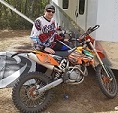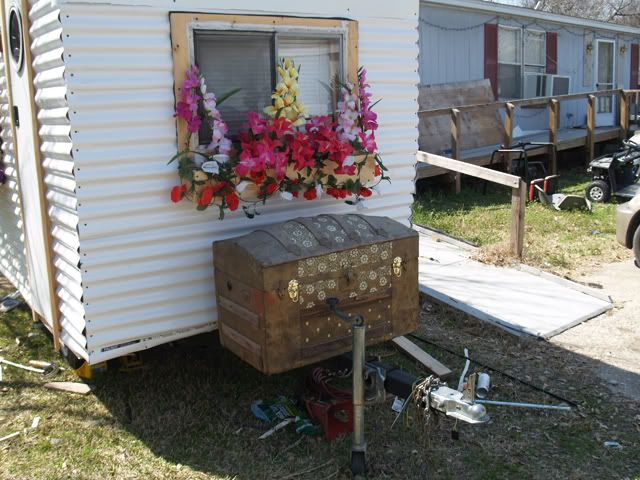"grounding" question
21 posts
• Page 1 of 2 • 1, 2
"grounding" question
I'm just trying to verify if I need to "ground" my 12vdc system. i.e. do I need to bond the (-) of any part of it to the truck frame or chassis?
All of my loads have 2 wires and both wires will be ran to a fusebox connected to the battery. I see nothing to indicate any of it needs to be bonded to the frame/body/chassis for "grounding".
I have 200ah lifepo4 battery for my truck bed camper. For now, I won't be installing an inverter, solar, or dc-dc charger. The system is not connected to the trucks battery or alternator in any kind of way. All my loads are 12vdc. The only AC component is an AC charger and it will only be used while all the 12v stuff is disconnected. I have a shutoff switch to shutoff the dc system when I use the AC charger and I remove the AC charger before I turn the switch back on.
Please correct me if I'm wrong, but given my particular system, do I need to bond anything to the frame/body/chassis?
All of my loads have 2 wires and both wires will be ran to a fusebox connected to the battery. I see nothing to indicate any of it needs to be bonded to the frame/body/chassis for "grounding".
I have 200ah lifepo4 battery for my truck bed camper. For now, I won't be installing an inverter, solar, or dc-dc charger. The system is not connected to the trucks battery or alternator in any kind of way. All my loads are 12vdc. The only AC component is an AC charger and it will only be used while all the 12v stuff is disconnected. I have a shutoff switch to shutoff the dc system when I use the AC charger and I remove the AC charger before I turn the switch back on.
Please correct me if I'm wrong, but given my particular system, do I need to bond anything to the frame/body/chassis?
- SpitballJedi
- Teardrop Inspector
- Posts: 12
- Images: 1
- Joined: Thu Jan 20, 2022 1:57 am
- Location: Dalton, GA
Re: "grounding" question
As long as the 12vdc circuits have a direct return to the battery, there is no need. In automobiles in particular, the battery negative to the chassis (called ground sometimes) is just a return and reduces the need for all direct wires to be run to the battery terminal. Basically, the chassis is being used as a negative bus bar to complete the circuit in this case. It is less expensive and saves alot of wiring.
Bottom line, as you have described it, no need to connect negative of 12vdc battery sysyem for truck camper to the truck chassis. Running direct returns to the battery is okay.
Sent from my SM-N970U using Tapatalk
Bottom line, as you have described it, no need to connect negative of 12vdc battery sysyem for truck camper to the truck chassis. Running direct returns to the battery is okay.
Sent from my SM-N970U using Tapatalk
Don (Flboy)
YouTube Video of Finished 6x12 Trailer:
https://youtu.be/6_-8cVdWUIA
YouTube Video of 7*18 with 2ft V-nose Trailer:
https://youtu.be/MUcMM86LA2g
YouTube Video of Finished 6x12 Trailer:
https://youtu.be/6_-8cVdWUIA
YouTube Video of 7*18 with 2ft V-nose Trailer:
https://youtu.be/MUcMM86LA2g
-

flboy - Gold Donating Member
- Posts: 4218
- Images: 378
- Joined: Tue May 15, 2012 6:13 pm



